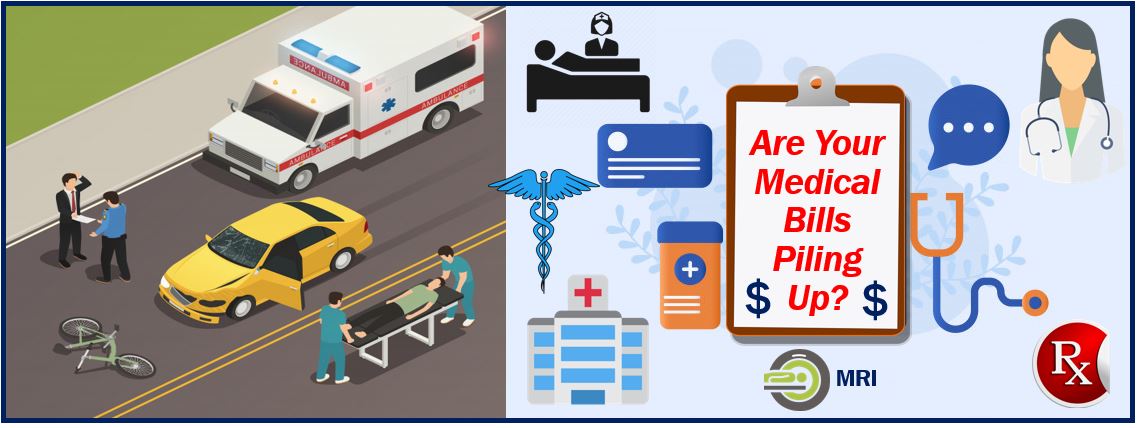As a car accident victim, you’re suddenly thrown into a situation where you have to worry about your health, your vehicle, your finances, and your job – all at the same time. Unfortunately, this often leads to confused and improper decision making. But you don’t have to suffer the same fate.

How to Handle Your Medical Bills
In the wake of a car accident, your health is always the primary concern. (This includes both your physical and mental health.) However, finances come in a close second place.
Medical bills after an accident can pile up faster than leaves on a blustery fall day. From ambulance transport to the emergency room visit to ongoing care, a single accident can lead to tens of thousands of dollars of bills – money you probably don’t have in your checking account. So what do you do?
The secret is to pursue any and all options until you find the right combination of assistance to help you pay off your bills and get better. Here are a few steps you’ll want to take right off the bat:
-
Look Into Workers’ Comp
One of the first things to consider is whether your injuries are work-related. Because if you were injured while on the job – or in an incident that could be connected to your job – you may be eligible for a workers’ compensation claim.
Workers’ comp is the first insurance to kick in and pay for medical bills related to an injury. So this is the logical first place to start. But if your injuries occurred independent of your employment, you’ll have to pursue other options.
-
Find Out About PIP Insurance
Since the majority of car accidents don’t involve workers’ comp, you’ll probably need to move on and look at personal injury protection (PIP) insurance. This is coverage that exists on your auto insurance policy (it’s required by law). If you’re injured, it’ll kick in a certain amount to cover your bills.
The tricky part is that PIP coverage functions on a first come, first serve basis. This means the medical bills that are processed through PIP first – not necessarily the ones that were accrued first – will be covered first. But once PIP is gone, it’s gone. (The limit is usually only a few thousand dollars.)
-
Review Your Health Insurance
Health insurance is another factor. They’ll pay for some of your medical bills, but it comes with a caveat: You need to let them know that the injuries are related to an auto accident.
When your health insurance company pays bills related to an auto accident, they’re going to expect reimbursement from your personal injury settlement. (Make sure you understand this!) So while they may pay your bills up front, they want their money back. This makes health insurance a short-term stop gap to cover your bills until a more permanent solution is reached.
-
Hire a Skilled Attorney
The aforementioned sources may provide compensation for some of your medical bills, but they won’t cover all of the other expenses associated with a serious car accident. If you find yourself with piles of unpaid bills, you may need to hire a skilled attorney to help you negotiate with insurance companies and/or file a lawsuit against the responsible party.
Depending on your situation, you may be eligible to receive money for expenses like uncovered medical bills, lost wages and time off work, property damage, pain and suffering, diminished quality of life, and loss of companionship.
Another benefit to hiring a lawyer is that you don’t have to spend all of your own time and energy pursuing recompense. Instead, you can focus on recovering and returning to your normal life.
When hiring a lawyer, look for someone who is experienced and local. You’ll also want a lawyer who is hyper focused on car accident cases. There are a lot of nuances and complexities to these cases that require a well-trained eye.
Take Charge of Your Situation
Don’t sit back and wait for money to come to you. Nobody else cares more about your situation than you do. Be proactive and seek out compensation before it’s too late to do something. (There are statutes of limitation on lawsuits, insurance claims, etc.) How and when you choose to proceed will have a dramatic impact on your long-term recovery – physically, mentally, and financially.
Interesting related article: “What is Compensation?“

